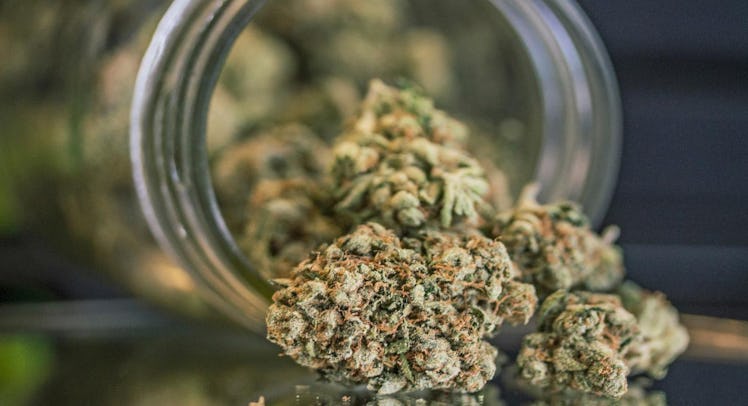Young Potheads Become Pothead Parents, Study Says
Even though people cut back on marijuana when they become parents, many continue to take the occasional puff.

When potheads become parents, many retire their bongs for good. But a new study suggests that, even though weed-smoking parents do cut back, many continue to take the occasional rip. And that’s disturbing, because we’re still not sure how stoned parenting affects kids.
“When it comes to adults, we don’t know long-term consequences of moderate marijuana use in the legal context, so that we cannot say that we absolutely must intervene,” Marina Epstein, Ph.D., formerly of the University of Washington, who co-authored the study, said in a statement. “However, when it comes to parents, their use is strongly related to their children’s marijuana use, and that is a significant problem, since adolescent marijuana use can be harmful.”
Being raised by marijuana smokers isn’t as chill as it sounds. In fact, one 2016 study found that children of pot-smokers were more likely to use marijuana and alcohol as adolescents. For that reason alone, Epstein and colleagues consider it crucial that we understand the patterns and behaviors that predict marijuana use among adults.
For the study, the researchers asked 808 parents and non-parents (half of the study pool consisted of women and people of color) about their marijuana use. They found that 40% of non-parents smoked pot compared to 25% of parents, and that both groups’ marijuana use declined by age 30.
About 16% of parents said they’d smoked at least once in the past year. Epstein and colleagues found that parents who continued toking after having kids were more likely to have started smoking pot as young adults, to view marijuana as a good thing, and to have partners who also smoked. In other words, if you love 4/20, your partner is a pothead, and you’ve been smoking up since high school, you’re likely to keep on smoking occasionally even after having kids.
“This shows that we need to treat substance use as a family unit. It isn’t enough that one person quits; intervention means working with both partners,” Epstein said. “We also need to tackle people’s positive attitudes toward marijuana if we want to reduce use.”
This article was originally published on